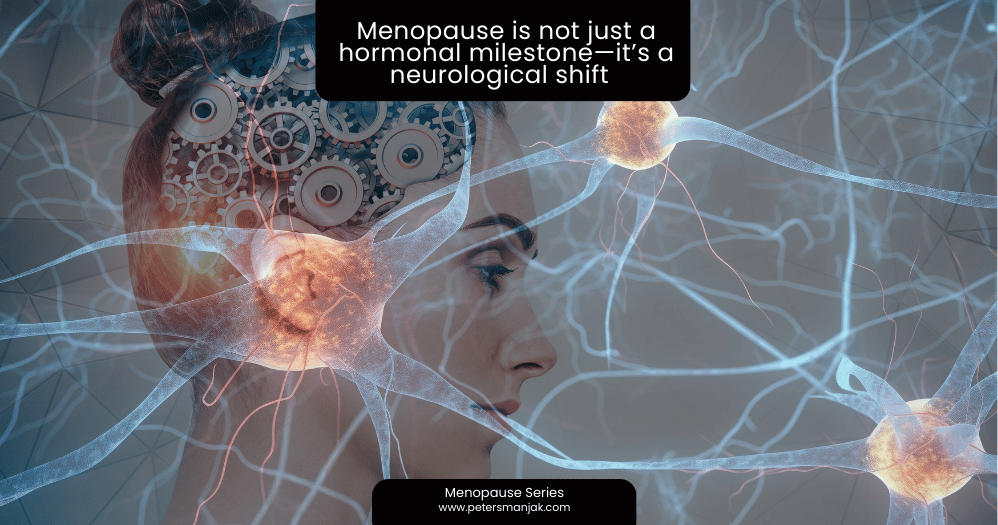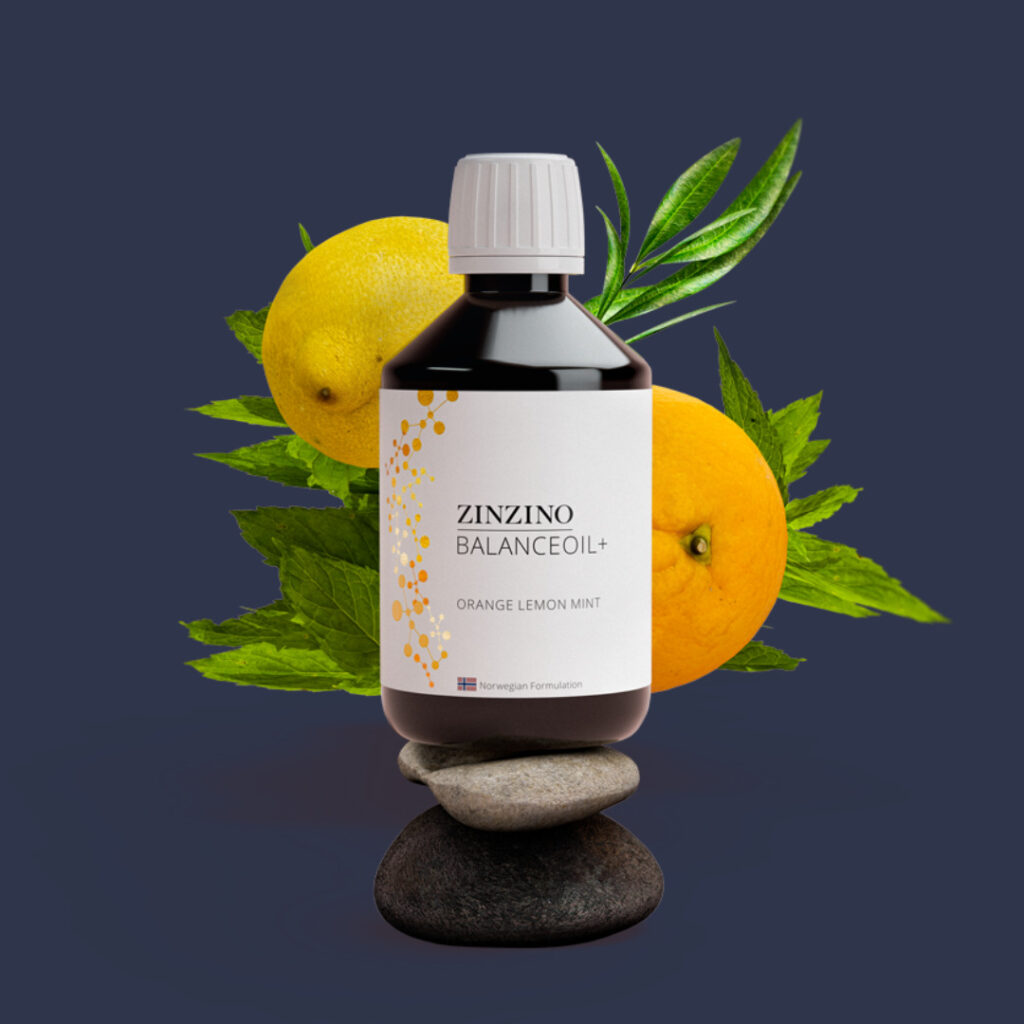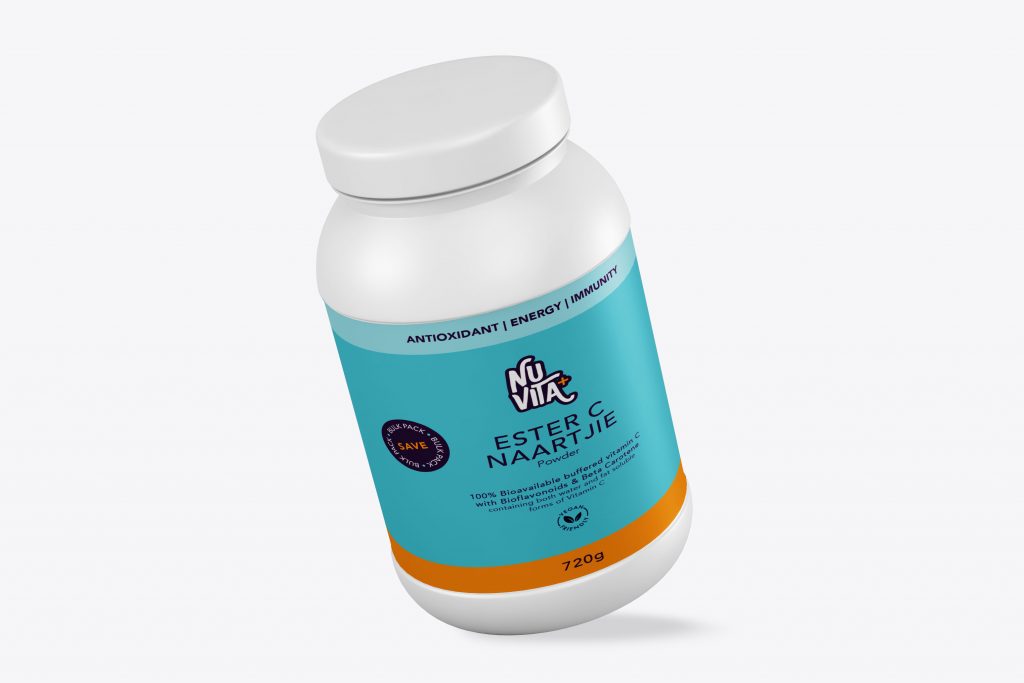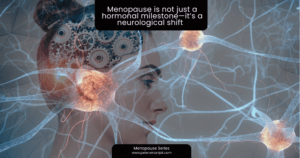Understanding the science can help you regain clarity, confidence, and control
After reviewing the 90-minute interview with Dr. Lisa Mosconi, a leading neuroscientist and author of The Menopause Brain, it is undeniably clear that menopause is not just a hormonal milestone—it’s a neurological shift that profoundly affects a woman’s cognitive health. Her research sheds light on something many women have suspected but couldn’t quite explain: that the mental and emotional changes they experience in midlife are biological, not imagined.
Think of your brain like a power grid. For years, estrogen has been your main energy source—keeping the lights on in every room. But during perimenopause, that supply starts to flicker. Glucose metabolism drops. ATP (your brain’s energy currency) declines. Communication between neurons slows. And for many women, that’s when the lights dim—mentally, emotionally, and physically.
Here’s What Dr. Mosconi’s Research Reveals:
- Menopause is not just hormonal—it’s neurological. The brain shows changes in energy, structure, and function, especially during perimenopause.
- Glucose metabolism in the brain drops by up to 30%. That means your brain has less fuel to function—leading to fatigue, brain fog, and forgetfulness.
- ATP (energy production) is depleted. Your brain is trying to overcompensate, using more energy than it has in reserve—leading to burnout.
- These changes can be seen in real-time brain scans. This isn’t anecdotal—this is physiology.
So What Can You Do?
The good news: your brain isn’t breaking. It’s recalibrating. And there are steps you can take right now to support it.
1. Fuel Your Brain Wisely
Adopt a brain-healthy diet that stabilizes energy and reduces inflammation:
- Fatty fish, walnuts, leafy greens, berries, olive oil (High Quality Omega 3 Oils)
- Lots of fiber, lots of antioxidants (your brain and ovaries are high-stress organs)
- Ditch excess sugar and processed foods—they add stress your brain doesn’t need
2. Hydrate Strategically
Even mild dehydration affects mood, memory, and cognition. Add trace minerals or sea salt for better absorption and cellular function.
3. Move with Purpose
Exercise improves blood flow, regulates temperature (helpful for hot flashes), and boosts mood and cognition:
- Cardio for mental clarity
- Strength training for mood and metabolic stability
- Stretching or yoga for stress relief and better sleep
4. Prioritize Sleep
Your brain detoxes and resets while you sleep. Create space for it:
- Limit blue light
- Keep a wind-down routine
- Support your melatonin naturally
5. Manage Stress Like a Boss
High cortisol competes with estrogen production. Chronic stress worsens brain fog and hormone imbalance. Try mindfulness, breathwork, or nature walks—whatever helps you decompress.
Final Takeaway
Menopause isn’t a cliff—it’s a curve in the road. With knowledge, tools, and support, you can navigate it without losing yourself along the way.
Your brain isn’t in decline—it’s asking for new support.
And now, you know exactly how to give it what it needs.
Want more practical insights like these?
Consider our 8-week online program to ease the chaos, reset your body, and rediscover your energy. Menopause Reset Program is designed for women in transition.








